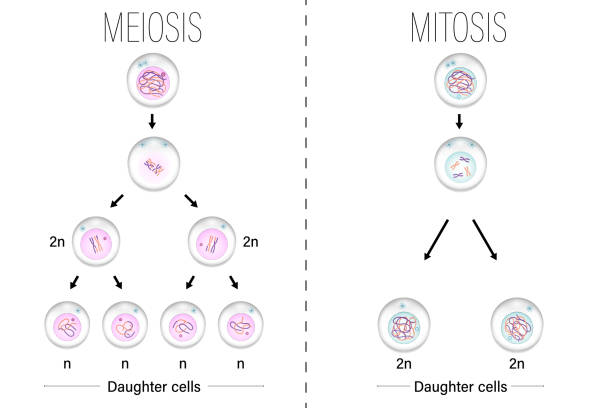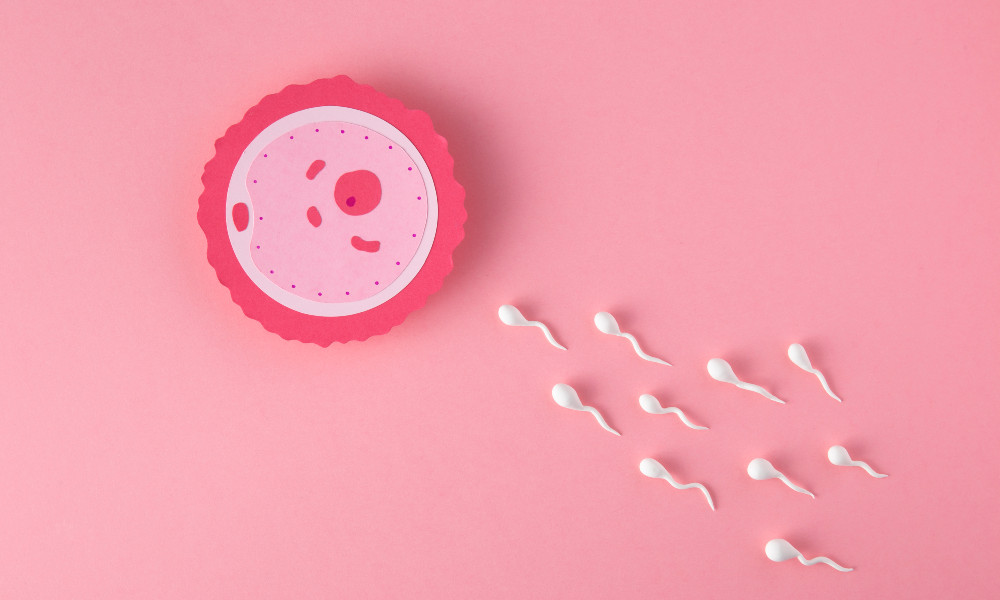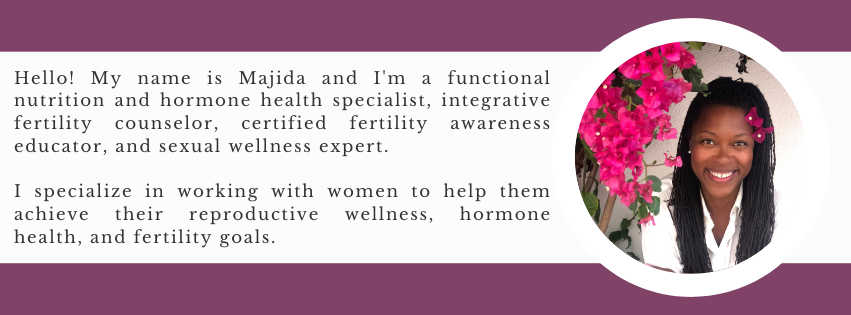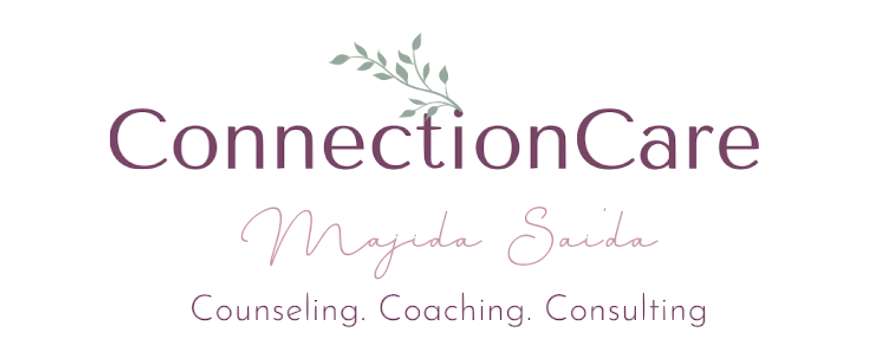If you’re trying to conceive, you’ve likely encountered discussions about the importance of “egg quality.” However, it’s essential to recognize that while egg quality is significant, follicle quality plays a pivotal role in the conception process, and it’s something a woman can actively influence. In this blog post, we’ll explore the concept of follicle quality and its impact on fertility. We’ll delve into the factors that affect follicle health and the strategies you can employ to optimize it.
Whether you’re embarking on your TTC journey or have been actively trying to conceive for some time, understanding the role of follicle quality is paramount to maximizing your chances of pregnancy success.
Let’s delve deeper into this crucial aspect of fertility!
An Overview: Egg Quality vs. Follicle Quality
Egg quality and follicle quality are closely related but distinct concepts in female reproductive health. Both are critical for successful conception and pregnancy, but they refer to different aspects of the reproductive process.
Egg Quality
Egg quality encompasses the health and viability of the oocyte (egg cell), including its genetic integrity and capacity for fertilization, embryonic development, and successful pregnancy. Meiosis, the specialized cell division process responsible for producing gametes (egg and sperm cells), significantly influences the quality of an egg.
Factors Affecting Egg Quality:
- Age: Egg quality declines with age, particularly after the mid-30s.
- Genetic Integrity: Chromosomal abnormalities can occur more frequently as women age.
- Mitochondrial Function: Mitochondria provide energy for cell division; their efficiency decreases with age.
- Oxidative Stress: Increased oxidative stress can damage eggs.
- Hormonal Balance: Proper levels of reproductive hormones are crucial for maintaining egg quality.
Indicators of Poor Egg Quality:
- High Miscarriage Rate: Poor egg quality can lead to chromosomal abnormalities, increasing the risk of miscarriage.
- Difficulty Conceiving: Poor quality eggs may fail to fertilize or develop properly.
- Increased Aneuploidy: Eggs with chromosomal abnormalities may not develop into viable embryos.

Follicle Quality
Follicle quality pertains to the health and functionality of the entire ovarian follicle, comprising the oocyte (egg) along with the surrounding granulosa and theca cells. These cells facilitate the egg’s development and maturation by producing hormones and supplying nutrients. During the initial stages of ovarian follicle development, the granulosa and theca cells undergo proliferation via mitosis.
Factors Affecting Follicle Quality:
- Hormonal Environment: Proper signaling from FSH (Follicle Stimulating Hormone) and LH (Luteinizing Hormone) is essential for follicle development.
- Blood Supply: Adequate blood flow to the ovaries ensures that follicles receive necessary nutrients and hormones.
- Inflammation: Chronic inflammation can impair follicle development.
- Lifestyle Factors: Diet, stress, and exposure to toxins can affect follicle health.
Indicators of Poor Follicle Quality:
- Irregular Menstrual Cycles: Can indicate issues with follicle development.
- Anovulation: The absence of ovulation often points to problems with follicle maturation.
- Low Antral Follicle Count: Fewer developing follicles can indicate reduced ovarian reserve and follicle quality.
- Poor Hormonal Response: Low or high levels of hormones like estrogen and progesterone can signal issues with follicle quality.
Egg Quality vs Follicle Quality
|
Egg Quality |
Follicle Quality |
| Focus |
Health and viability of the egg cell |
Health and functionality of the entire follicle |
| Components |
Genetic material, mitochondrial function, ability to fertilize and develop |
Oocyte, granulosa cells, theca cells, hormonal support |
| Primary Influences |
Age, genetic integrity, oxidative stress, hormonal balance |
Hormonal environment, blood supply, inflammation, lifestyle factors |
| Indicators |
High miscarriage rate, difficulty conceiving, aneuploidy |
Irregular menstrual cycles, anovulation, low antral follicle count, poor hormonal response |
| Impact on Fertility |
Directly affects embryo development and pregnancy success |
Supports egg maturation and readiness for ovulation |
Relationship Between Egg Quality & Follicle Quality
- Interdependence: Healthy follicles are necessary to support the development of high-quality eggs. If the follicle environment is poor, the egg within it may not reach its full potential.
- Hormonal Support: Follicles provide the necessary hormonal environment for egg maturation. Any disruption in follicle function can lead to poor egg quality.
- Developmental Stages: Follicle quality impacts earlier stages of oocyte development, while egg quality becomes critical during and after ovulation.
In summary, while egg quality focuses on the viability and genetic integrity of the oocyte, follicle quality encompasses the overall environment and support system that nurtures the egg. Both are crucial for successful conception and maintaining a healthy pregnancy.
Follicle Quality: A Deeper Dive
Follicle quality is a crucial consideration when it comes to trying to conceive (TTC). While egg health is often discussed, follicle quality plays an equally significant role and is something a woman can actively influence. In this section, we’ll delve deeper into the various factors that affect follicle quality.
Age
Age remains a primary determinant of follicle quality. As women age, the quality and quantity of their follicles typically decline, posing challenges to conception. Diminished follicle quality raises the likelihood of chromosomal abnormalities, which can lead to miscarriage or congenital disabilities.
Despite age-related declines, research indicates that follicle quality can be improved irrespective of age. Embracing a balanced diet and engaging in regular physical activity can notably enhance follicle quality. Reducing exposure to environmental pollutants and refraining from smoking are also beneficial. Certain supplements and medications, such as CoQ10 and DHEA, have demonstrated effectiveness in enhancing follicle quality, particularly in older women. While age-related changes pose obstacles, proactive measures can be taken to enhance the likelihood of conception.
Lifestyle Factors
In addition to age, various lifestyle factors influence follicle quality. A woman’s diet, exercise regimen, smoking habits, and alcohol consumption all contribute to follicle health. Consuming a nutritious diet rich in antioxidants, healthy fats, and protein can optimize follicle quality. Conversely, excessive alcohol intake and smoking can detrimentally affect follicle health. Exercise is another crucial factor, with moderate physical activity positively impacting fertility. However, excessive or intense exercise may have adverse effects.
It’s essential to recognize that even minor lifestyle adjustments can significantly enhance follicle quality, underscoring the importance of making healthy choices for overall reproductive well-being.
Medical Conditions

Medical issues can have a considerable influence on fertility and egg quality. Polycystic ovary syndrome (PCOS) and endometriosis are two of the most common medical problems that can adversely affect egg and follicle quality.
PCOS, a hormonal disorder, can disrupt ovulation, resulting in irregular periods and decreased fertility. This can also impact egg and follicle quality, as the hormones that regulate ovulation play a role in egg maturation.
Endometriosis is a medical condition in which tissue similar to the lining of the uterus grows outside the uterus. Inflammation and scarring can occur, which may result in a reduction in ovarian function and a deterioration in the quality of eggs produced.
Working with a functional nutrition practitioner specializing in fertility and hormone health is essential to optimizing your reproductive health and improving your chances of conception.
Functional nutrition is an approach that looks at the root cause of health issues and aims to optimize health through targeted nutrition interventions. Functional nutrition can be crucial in enhancing reproductive health and increasing the probability of conception, particularly for women with conditions such as endometriosis and PCOS. Functional nutritionists can help identify dietary triggers contributing to symptoms such as inflammation and hormonal imbalances.
They can then recommend nutrient-dense foods and supplements that support reproductive health, such as omega-3 fatty acids, antioxidants, and vitamin D. By addressing underlying imbalances through a functional nutrition approach, women with PCOS and endometriosis can potentially improve their egg and follicle quality, supporting their chances of conceiving.
Environmental Toxins
Environmental toxins are a growing concern for reproductive health and fertility. Exposure to chemicals, pesticides, and pollutants from air, water, and food sources can negatively impact fertility. Studies have shown that exposure to toxins such as bisphenol A (BPA), phthalates, and heavy metals can result in lower ovarian reserve and reduced fertility.
Reducing exposure to these toxins is crucial to protect reproductive health, including preserving egg and follicle quality. Simple steps like using natural cleaning products, filtering drinking water, and choosing organic foods can help reduce exposure to environmental toxins and improve your chances of conception.
Understanding the factors that affect egg and follicle quality may help you take steps to improve your reproductive health and increase your chances of conceiving. The following section will discuss how to assess egg and follicle quality to determine the best course of action in your TTC journey.
Understanding the factors that impact egg and follicle quality is crucial in optimizing fertility. However, it can be challenging to recognize the signs of poor egg quality and follicle development. In the following section, we will explore the indicators of poor egg and follicle quality and their potential impact on conception.
Signs of Poor Egg Health & Follicle Quality
Poor egg quality and follicle health can present challenges for couples trying to conceive. While these issues may not always manifest with overt symptoms, certain signs can signal underlying problems.
These include irregular periods, abnormal bleeding, changes in cervical fluid, failed IVF cycles, and miscarriage. These symptoms may stem from various factors, such as hormonal imbalances or age-related declines in egg and follicle health.
If you notice any of these signs, consulting with a qualified healthcare provider or hormone health specialist is crucial. In the sections that follow, we will explore strategies to improve egg and follicle quality and increase the chances of successful pregnancy.
Poor Egg Health & Follicle Quality May Show Up As:
- Irregular periods: Changes in menstrual cycle patterns, such as irregular cycles or cycles that are shorter or longer than usual, may suggest poor egg quality. Follicle health directly influences hormone levels, which can affect the regularity of menstrual cycles
- Abnormal bleeding: Women with poor egg quality may experience abnormal bleeding patterns, including heavy or prolonged periods, spotting between periods, or bleeding after intercourse. These irregularities could indicate hormonal imbalances associated with follicle health.
- Changes in cervical fluid: Cervical fluid, also called cervical mucus, plays a vital role in fertility and conception. Poor follicle quality can lead to alterations in the texture, consistency, and amount of cervical mucus, potentially hindering sperm movement and fertilization.
- Failed IVF cycles: In vitro fertilization (IVF) is a standard fertility treatment that involves combining eggs and sperm in a laboratory and then transferring the resulting embryos to the uterus. Women with poor egg quality may experience failed IVF cycles, where the embryos do not implant or develop properly.
- Miscarriage: Poor egg quality and follicle health increases the risk of miscarriage due to chromosomal abnormalities in the embryo. Miscarriages may occur when the embryo fails to implant, develops improperly, or results in early pregnancy loss.
It is essential to discuss any signs of poor egg health and follicle quality with a healthcare provider or a functional nutrition provider. These signs can be indicative of underlying fertility issues and may require further testing and treatment.
Now that you know the signs that may indicate poor egg and follicle health, exploring ways to improve it is essential. In the next section, we will discuss various methods to enhance egg and follicle quality and boost the chances of conception. These include strategies such as diet and nutrition, exercising, managing stress, taking supplements, and more.
Support Fertility By Improving Follicle Quality

Enhancing follicle quality is a crucial aspect of optimizing fertility and increasing the likelihood of conception. While the process of egg development begins before birth and is largely determined by genetic factors, there are steps individuals can take to support follicle quality, thereby influencing egg health.
Here are some strategies to consider:
- Lifestyle modifications: Minimizing exposure to environmental toxins and pollutants can help safeguard follicle quality and overall reproductive health. Additionally, adopting a balanced diet rich in antioxidants, healthy fats, and protein while limiting processed foods, refined sugars, and excessive caffeine and alcohol consumption can promote optimal egg development.
- Nutritional support: Certain nutrients and supplements have shown promise in supporting follicle health and egg quality. Coenzyme Q10 (CoQ10) and omega-3 fatty acids, for example, have been associated with improvements in egg quality. Incorporating these nutrients into your diet or through supplementation may be beneficial for reproductive health.
- Physical activity: Regular exercise not only promotes general well-being but also enhances blood flow to the ovaries, potentially supporting follicle development. Engaging in moderate-intensity exercise, such as walking, swimming, or yoga, can contribute to overall reproductive health and may positively impact egg quality.
- Stress management: Chronic stress can negatively impact fertility and egg quality. Implementing stress-reducing techniques such as mindfulness meditation, yoga, or deep breathing exercises can help mitigate the effects of stress on reproductive health and support follicle development.
- Acupuncture: Some research suggests that acupuncture may improve blood circulation to the reproductive organs, including the ovaries. By enhancing blood flow, acupuncture could potentially contribute to the optimization of follicle quality and egg development in certain individuals.
By incorporating these lifestyle and functional nutrition strategies into your daily routine, you can take proactive steps to support follicle health and enhance your chances of conceiving. Consulting with a healthcare provider or fertility specialist can provide personalized guidance tailored to your unique needs and circumstances, further optimizing your reproductive health journey.
It Starts With An Egg
If you’re trying to conceive, one resource that may support you on your fertility journey is It Starts With An Egg by Rebecca Fett.
This robust book is packed with research-backed strategies to help improve egg quality and boost your chances of conceiving. It covers all topics related to reproductive health, including the impact of diet and nutrition, the benefits of taking supplements, the role of exercise, and lifestyle factors that can influence egg and follicle quality.
It’s no wonder why so many people turn to this book as a guide to optimizing their fertility and increasing their chances of getting pregnant.
It Starts With An Egg: A Few Key Points
| Strategy |
Action |
Research |
| Remove environmental toxins |
Avoid exposure to chemicals, pesticides, and pollutants |
Reducing exposure to environmental toxins can help preserve egg quality. |
| Diet and nutrition |
Consume a diet rich in antioxidants, healthy fats, and protein |
Studies have shown that a diet rich in antioxidants, healthy fats, and protein can improve egg quality. |
| Supplements |
Take CoQ10 and omega-3 fatty acids |
CoQ10 is a powerful antioxidant that may help improve egg quality, while omega-3 fatty acids may improve embryo quality. Studies have shown that CoQ10 supplementation can improve pregnancy rates and reduce the risk of chromosomal abnormalities. |
| Exercise |
Engage in regular moderate exercise |
Regular moderate exercise has been shown to improve fertility and egg quality. However, excessive exercise can have the opposite effect. |
| Stress management |
Practice stress-reducing activities such as yoga or meditation |
High levels of stress can have a negative impact on fertility and egg quality. Practicing stress-reducing activities has been shown to improve reproductive outcomes. |
| Acupuncture |
Try acupuncture to improve blood flow and reduce stress |
Acupuncture may improve blood flow to the reproductive organs and reduce stress, potentially improving fertility and egg quality. |
It is important to keep in mind that while supplements may be beneficial, they should not be the only means for improving egg development and follicular health. It’s essential to prioritize a nutritious diet, regular physical activity, effective stress management, and limiting exposure to harmful environmental toxins.
Working with a functional nutrition practitioner is essential to ensure that you are taking the right supplements in the right amounts. A functional nutrition practitioner can help you identify which supplements are best for your individual needs and health status and help you create a personalized supplement protocol. A practitioner can also keep track of your advancements and modify your supplement regimen if necessary. Collaborating with a professional can guarantee that the supplements you are taking are both safe and efficient.
While several lifestyle changes and supplements may support healthy egg and follicular health, sometimes medical interventions may be part of your journey to achieve a successful pregnancy. The following section will discuss some medical interventions available for individuals with poor egg quality.
Medical Interventions for Poor Egg Quality
If you are struggling with poor egg quality, several medical interventions may support your chances of conceiving. Here are a few options to consider:
- Ovarian Stimulation Medications: This medication can help stimulate the ovaries to produce more eggs, increasing your chances of conception. However, it is essential to note that this method only sometimes improves the eggs’ quality.
- IVF with Pre-Implantation Genetic Testing (PGT): This advanced fertility treatment involves in vitro fertilization (IVF) along with PGT. This screening method can detect chromosomal abnormalities in embryos before they are implanted. Improving certain factors can enhance the chances of a successful pregnancy and decrease the possibility of miscarriage or congenital disabilities.
- Donor Eggs: Using donor eggs may be an option for some. This involves using eggs from a donor, which are fertilized with your partner’s sperm and implanted in your uterus.
- Working with a Fertility Counselor: Fertility counselors can provide emotional support and guidance throughout your fertility journey. They can also help you navigate the complex medical options available to improve your chances of conception.
It is crucial to bear in mind that these medical interventions may not be appropriate for all individuals, and it is necessary to have a conversation about your choices with a qualified healthcare provider or fertility specialist.
If you have been diagnosed with poor egg quality or are experiencing fertility issues, you may be wondering what options are available to improve your chances of conceiving. While medical interventions such as ovarian stimulation medications and IVF with pre-implantation genetic testing can be effective, there are also functional nutrition approaches that can support your reproductive health. In the next section, we will explore how working with a functional nutrition practitioner can help improve egg quality and fertility.
Functional Nutrition, Egg Health, & Follicle Quality
Functional nutrition takes a comprehensive and holistic approach to health and wellness. Its goal is to identify and address the underlying causes of health issues instead of just treating the symptoms. Functional nutrition takes into account each person’s specific needs and challenges when it comes to fertility and creates a customized plan to promote reproductive health.

Key Points & Conclusion
Working with a functional nutrition practitioner and adopting fundamental lifestyle changes can improve your egg quality and increase your chances of conceiving naturally or through reproductive technologies. Let’s recap the key takeaways for improving egg quality and encourage seeking medical advice if you’re experiencing fertility issues.
Key Points
- Egg quality and follicle health significantly impact fertility and conception success.
- Factors influencing egg quality include age, lifestyle choices, medical conditions, and environmental factors, whereas women can actively influence follicle quality through lifestyle modifications.
- Strategies such as maintaining a balanced diet, regular exercise, stress management, and supplementation with CoQ10 and omega-3 fatty acids may enhance fertility by supporting both egg quality and follicle health.
- Tailored functional nutrition approaches can effectively support the optimization of follicle quality and overall reproductive health, complemented by guidance from fertility counselors for emotional support.
- Medical interventions like ovarian stimulation medications, IVF with pre-implantation genetic testing, and donor egg considerations are available options for individuals facing challenges with poor egg quality.
Conclusion
When trying to conceive, egg quality and follicle health are crucial factors that can significantly affect the chances of successful conception. It is essential to consider various lifestyle factors impacting egg quality, such as diet, exercise, smoking, and alcohol consumption.
Additionally, medical conditions like PCOS and endometriosis and exposure to environmental toxins can also affect egg health and follicle quality. However, various strategies can help improve fertility, such as removing ecological toxins, following a nutrient-dense diet, incorporating supplements like CoQ10 and omega-3 fatty acids, regular exercise, stress management, and acupuncture.
Seeking the guidance of a functional nutrition practitioner can also help support fertility and improve follicle health. In conclusion, those experiencing fertility issues should not hesitate to seek qualified advice and explore various strategies for improving egg and follicle quality to optimize their chances of successful conception and pregnancy.
About Majida

Sources
- Brown, A. M., & McCarthy, H. E. (2023). The effect of coq10 supplementation on art treatment and oocyte quality in older women. Human Fertility, 26(6), 1544–1552. https://doi.org/10.1080/14647273.2023.2194554
- Chavarro, J., Willett, W., & Skerrett, P. J. (2008). The fertility diet: Groundbreaking research reveals Natural Ways to boost ovulation & improve your chances of getting pregnant. McGraw-Hill.
- Esencan, E., Beroukhim, G., & Seifer, D. B. (2022). Age-related changes in folliculogenesis and potential modifiers to improve fertility outcomes – A narrative review. Reproductive Biology and Endocrinology, 20(1). https://doi.org/10.1186/s12958-022-01033-x
- Fett, R. (2019). It starts with the egg: How the science of egg quality can help you get pregnant naturally, prevent miscarriage, and improve your odds in IVF. Franklin Fox Publishing.
- Interdonato, L., Siracusa, R., Fusco, R., Cuzzocrea, S., & Di Paola, R. (2023). Endocrine disruptor compounds in environment: Focus on Women’s Reproductive Health and endometriosis. International Journal of Molecular Sciences, 24(6), 5682. https://doi.org/10.3390/ijms24065682
- Kaltsas, A., Zikopoulos, A., Moustakli, E., Zachariou, A., Tsirka, G., Tsiampali, C., Palapela, N., Sofikitis, N., & Dimitriadis, F. (2023). The silent threat to women’s fertility: Uncovering the devastating effects of oxidative stress. Antioxidants, 12(8), 1490. https://doi.org/10.3390/antiox12081490
- Kushnir, V. A., Darmon, S. K., Barad, D. H., Weghofer, A., & Gleicher, N. (2018). Effects of dehydroepiandrosterone (DHEA) supplementation on sexual function in premenopausal infertile women. Endocrine, 63(3), 632–638. https://doi.org/10.1007/s12020-018-1781-3
- Lewis, R. A. (2005). The infertility cure: The ancient chinese wellness program for getting pregnant and having healthy babies. Little, Brown and Co.
- Vitti, A. (2014). Womancode: Perfect your cycle, amplify your fertility, supercharge your sex drive, and become a power source. HarperOne.
- Weschler, T. (2016). Taking charge of your fertility the definitive guide to Natural Birth Control, pregnancy achievement, and Reproductive Health. Vermilion.
- Yao, X., Liu, W., Xie, Y., Xi, M., & Xiao, L. (2023). Fertility loss: Negative effects of environmental toxicants on oogenesis. Frontiers in Physiology, 14. https://doi.org/10.3389/fphys.2023.1219045
Disclaimer:
The information provided on this blog is for educational and informational purposes only and is not intended as a substitute for professional medical advice, diagnosis, or treatment. Always seek the advice of your physician or other qualified health provider with any questions you may have regarding a medical condition. The content on this blog is not meant to replace professional medical advice or to be used to prevent, diagnose, or treat any disease or illness. Reliance on any information provided by this blog is solely at your own risk.













